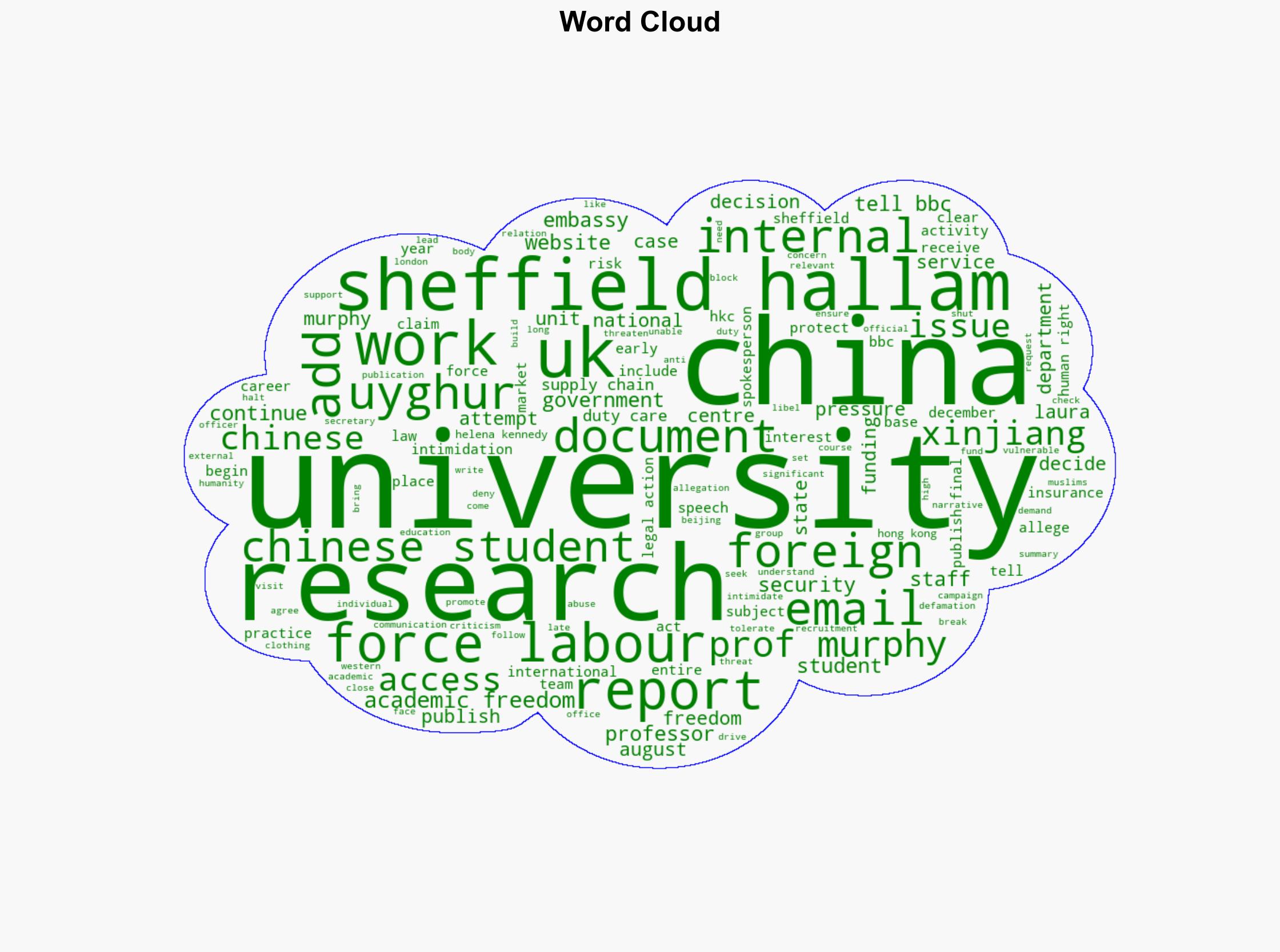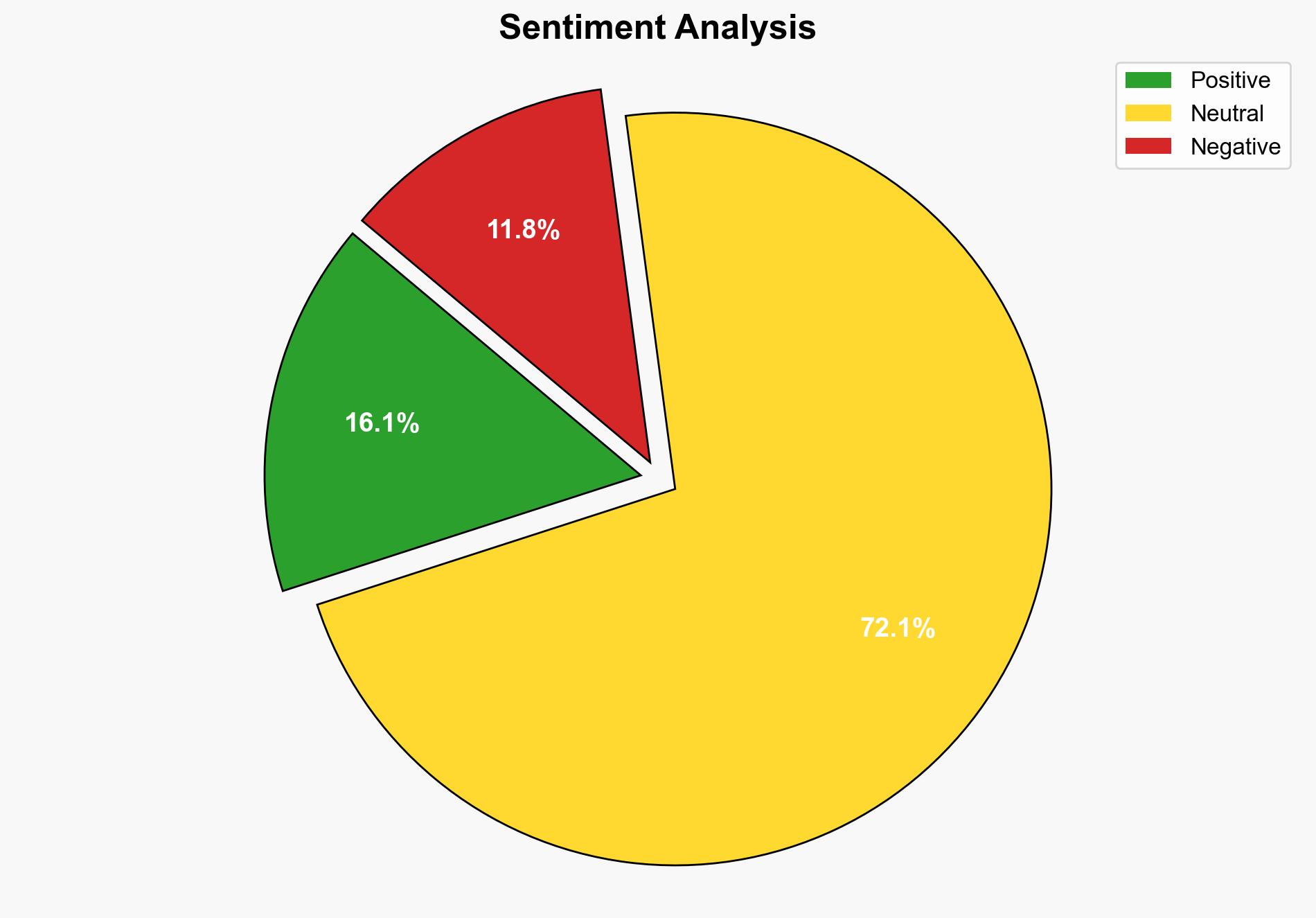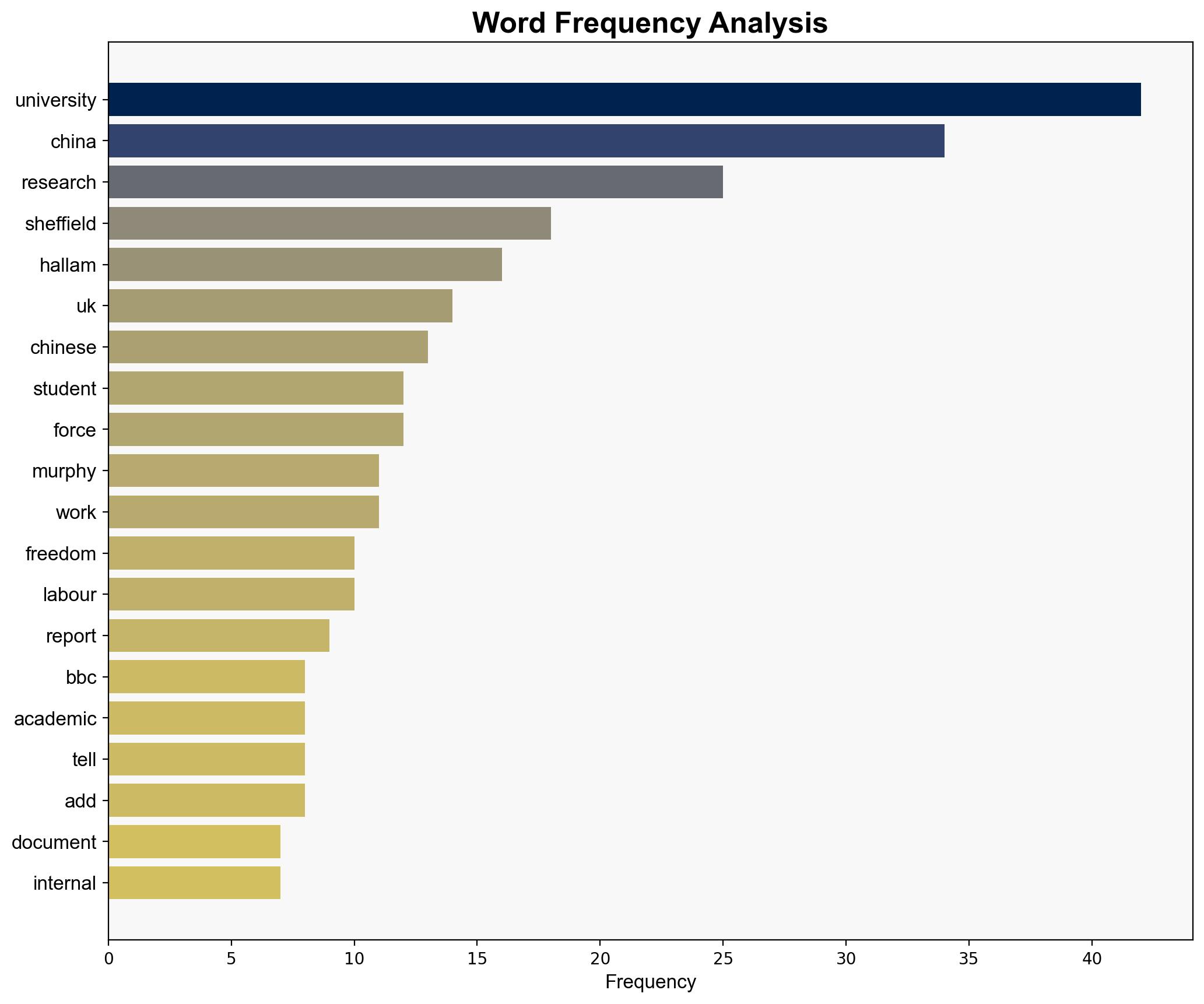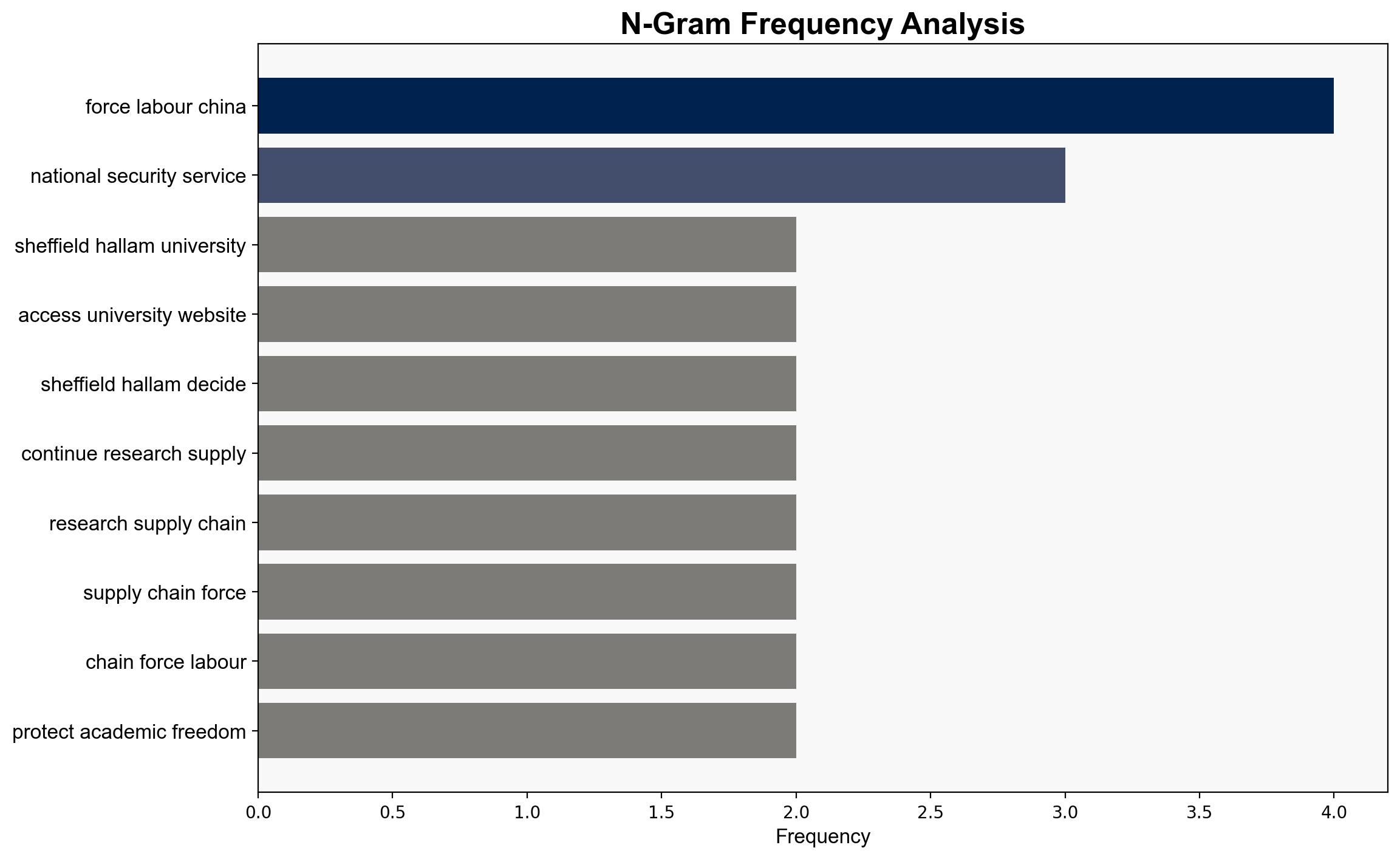China intimidated UK university to ditch human rights research documents show – BBC News
Published on: 2025-11-03
Intelligence Report: China intimidated UK university to ditch human rights research documents show – BBC News
1. BLUF (Bottom Line Up Front)
The most supported hypothesis is that China exerted pressure on Sheffield Hallam University to suppress research on human rights abuses to maintain its economic and educational ties with the UK. This is supported by evidence of intimidation tactics and the university’s actions to halt the research. Confidence level: Moderate. Recommended action: Strengthen policies to protect academic freedom and investigate foreign influence in educational institutions.
2. Competing Hypotheses
1. **Hypothesis A**: China actively intimidated Sheffield Hallam University to suppress research on human rights abuses, leveraging economic dependencies and threats to academic freedom.
2. **Hypothesis B**: The university independently decided to halt the research due to internal risk assessments and financial considerations, with China’s influence being indirect or overstated.
Using the Analysis of Competing Hypotheses (ACH) 2.0, Hypothesis A is better supported by the direct evidence of intimidation and the university’s subsequent actions. Hypothesis B lacks direct evidence of internal decision-making processes independent of Chinese influence.
3. Key Assumptions and Red Flags
– **Assumptions**: It is assumed that the university’s actions were directly influenced by Chinese pressure rather than internal policy decisions.
– **Red Flags**: The lack of transparency in the university’s decision-making process and the absence of corroborative internal documents raise concerns about potential bias or incomplete reporting.
– **Deception Indicators**: The denial of practices by the Chinese embassy and the university’s initial compliance suggest potential obfuscation.
4. Implications and Strategic Risks
– **Economic Risks**: Continued reliance on Chinese student enrollment could create vulnerabilities in academic independence.
– **Geopolitical Risks**: This incident may strain UK-China relations and impact broader international academic collaborations.
– **Psychological Risks**: Intimidation tactics could lead to self-censorship among academics, stifling critical research.
– **Potential Escalation**: If unchecked, foreign influence in academia could expand to other sectors, undermining national security.
5. Recommendations and Outlook
- Implement stricter oversight on foreign influence in academic institutions to safeguard research integrity.
- Encourage transparency and accountability in university decision-making processes.
- Scenario Projections:
- **Best Case**: Strengthened policies lead to greater academic freedom and reduced foreign influence.
- **Worst Case**: Continued foreign pressure results in widespread self-censorship and compromised research.
- **Most Likely**: Incremental policy changes improve resilience against foreign influence, but challenges persist.
6. Key Individuals and Entities
– Laura Murphy
– David Lammy
– Jo Grady
– Sheffield Hallam University
– Chinese Embassy in London
7. Thematic Tags
national security threats, academic freedom, foreign influence, UK-China relations




